26
Nov
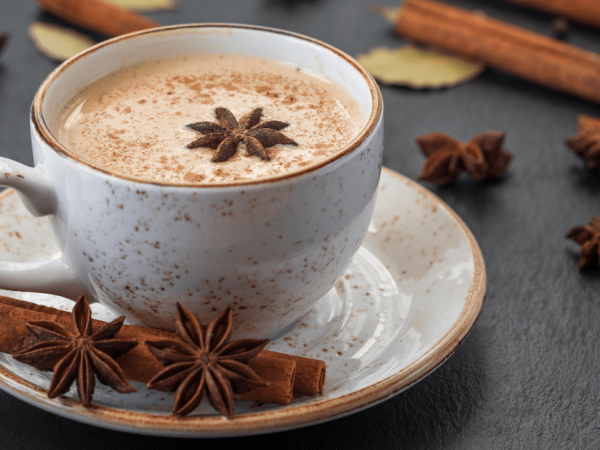
Chai tea and chai lattes are some of the most popular drinks in cafes not only in Australia but around the world. Many think that this spice-tea based drink is a new trend, but it’s known that “the origin of chai dates back more than 5,000 years ago when a king in what is India ordered a healing spiced beverage be created for Ayurveda”, which is a traditional medical practice that uses herbs and spices for healing. As the invigorating powers of this chai spread across the world, different spices started to be used to make the drink, depending on where the chai was being made.
Since traditional chai tea beverages can vary from region to region and family to family, there is no recipe that defines chai. But the beverage typically consists of black tea leaves mixed with several spices like cinnamon, nutmeg, ginger, back pepper, clove, mace, vanilla, star anise, cardamon, and so on. The tea is usually mixed with milk or cream and sugar or a natural sweetener for a perfect blend of sweet and savoury in a slightly caffeinated hot beverage.
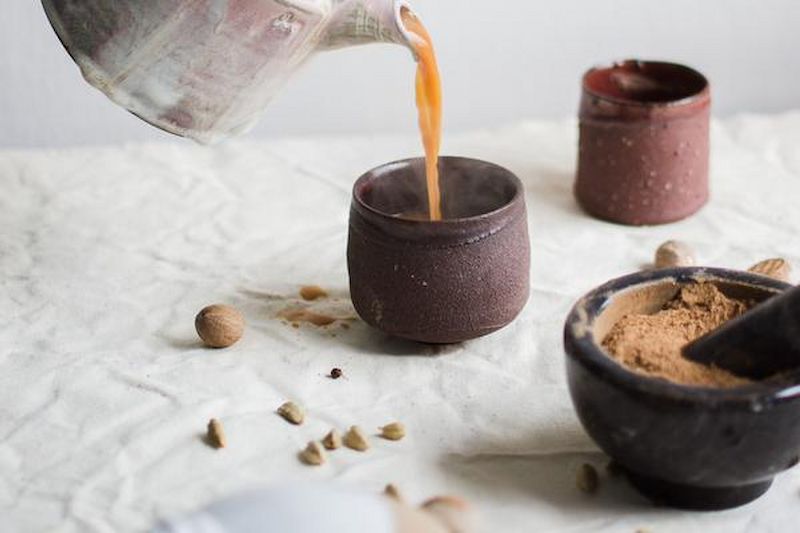
If you don’t have the time, energy or desire to waste valuable minutes brewing and steeping tea, a powdered chai tea mix might be a more convenient choice for your lifestyle. With a powdered chai, all you have to do is add hot water and stir for instant tea pleasure. Whether you like your powdered chai to be a traditional, spicy chai latte experience or a sweet and spicy guilty pleasure, with the range of chai tea powdered mixes available today, you’ll surely find your favourite mix.
In addition to its delicious flavour, the beverage also holds some healing power. Here is what happens to your body when you start to drink this type of tea on a regular basis.
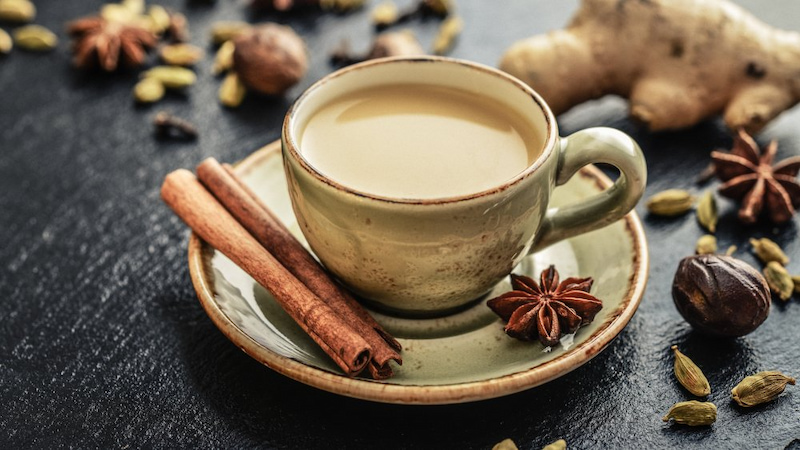
Drinking chai daily is great for regulating your digestive and keeping your gut healthy. Ginger is the spice that is largely responsible for digestive health benefits. It aids digestion by improving circulation and delivering oxygen to organs so they can perform optimally. Black pepper is another spice found in chai that aids digestion. It helps the pancreas produce digestive enzymes that speed up the digestive process. A more efficient digestive system helps prevent iron deficiency, irritable bowel syndrome and even help you lose some weight.
Cardamom, a common ingredient found in tea chai, is famous for containing high doses of vitamin C and other nutrients that keep the immune system healthy. If you’re looking to get the benefits of this spice in your chai, you may want to find out whether your tea contains black or green cardamom leaf tea. Black cardamom is known for its antiseptic and expectorant qualities while green cardamon can help clear your sinuses and detoxify your body. Still, both kinds of cardamom have antioxidant and antimicrobial properties that help to fight off common colds, bacteria and fungus.
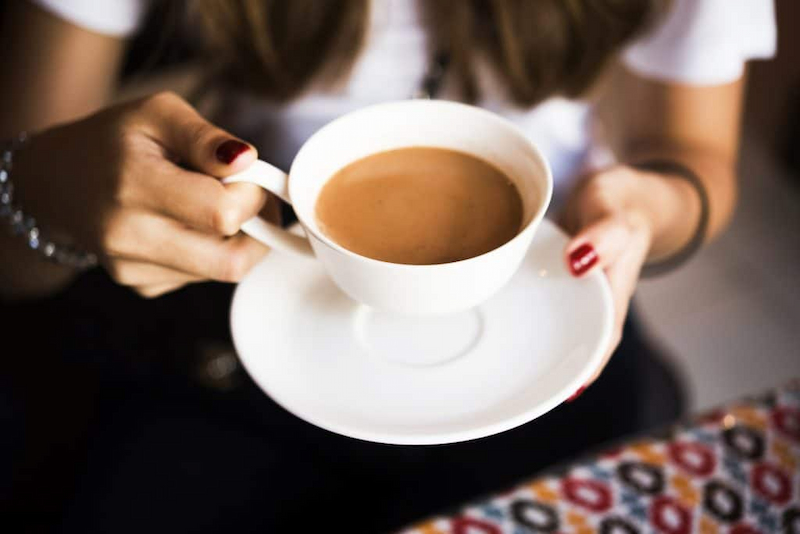
Cinnamon is one of the main ingredients in chai. Studies have shown that cinnamon has the ability to lower bad cholesterol and blood pressure. Black tea, another common ingredient, has also been shown to have healthy heart effects by lowering blood cholesterol levels.
Cinnamon also contains oils that have showed to be helpful in combating diabetes by helping to regulate blood sugar levels. Several studies have reported cinnamon to be a potential aid for people who has Type 2 diabetes.
The spices that are generally used to make chai tea are also beneficial at alleviating common aches and pain. These health benefits are mostly due to the anti-inflammatory characteristics of many of the ingredients found within the tea, particularly ginger and clove. The anti-inflammatory properties of ginger help ease pain ranging from minor headaches to migraines. And because ginger also helps improve circulation, more oxygen is delivered to areas with aches and pains, helping alleviate the symptoms.
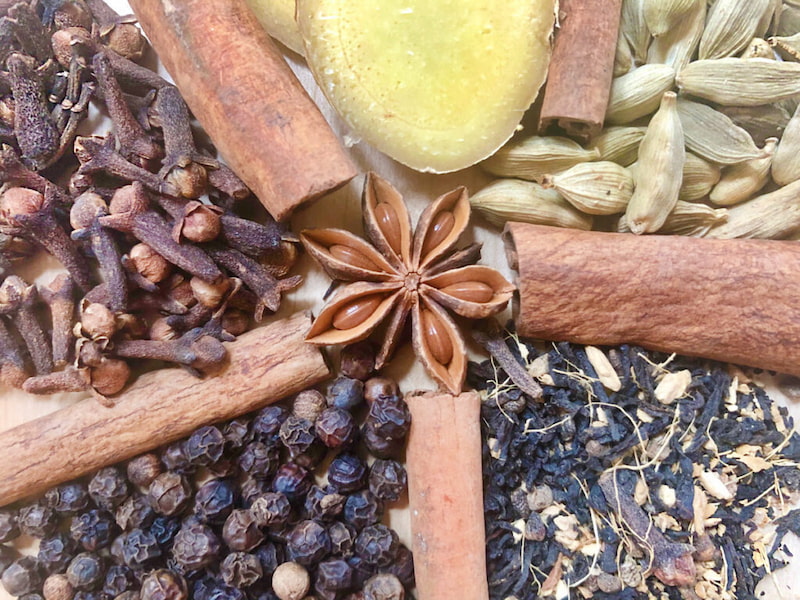
If prepared as directed, a cup of chai tea generally contains approximately 40 mg of caffeine compared to 120 mg in an average cup of coffee. However, the caffeine in tea is known to work differently due to the interaction with a component of tea known as tannin, which has a calming effect on the nervous system. This causes the caffeine to be absorbed much more slowly, avoiding the caffeine “shock” and inducing a calm, relaxed yet focused state of mind. Because chai doesn’t have the same effect as caffeine on the body, you can enjoy a few extra cups. Many individuals find they can even have it in the evening without disturbing sleep.